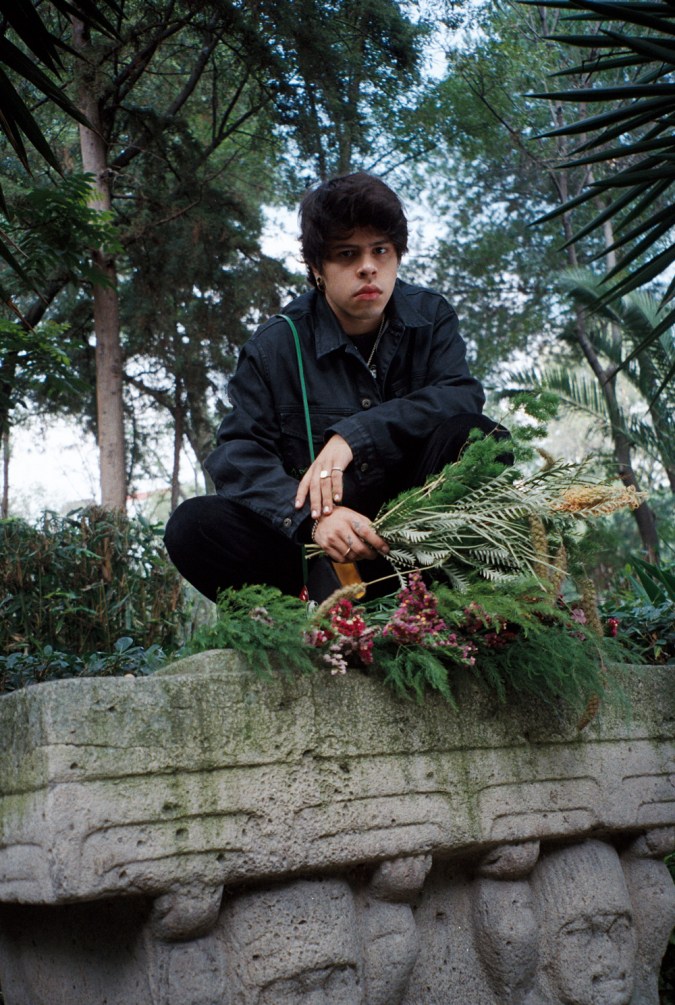As 2020 approaches, it’s becoming clear that Jesse Baez is one of the most important figures in the emerging R&B scene in Latin America, a sound that was all but non-existent at the beginning of the decade. In the latter half of the decade, the Guatemalan singer has become a reference for many artists wanting to enter the R&B, building an audience show by show and track by track. While Jesse’s voice, personality and work ethic certainly helped him make his mark, his particular sound has played the most important part of his success, and we have Yoshi to thank for that.
The young producer has been instrumental in helping Baez become such an accomplished artist. His warm yet lush production style can be heard on some of Jesse’s most successful tracks, like the sad yet seductive “Malbú,” the smooth and minimalistic “Turbo” and the ‘90s-leaning “Mama Lola,” which he rode to major label success. Ever since, Yoshi has expanded to work with artists such as Girl Ultra, Akapellah and Bruses. Although he’s in his early 20s, Yoshi has already had an interesting career in music that helps him put into lucid perspective the present and the future of R&B in Mexico.
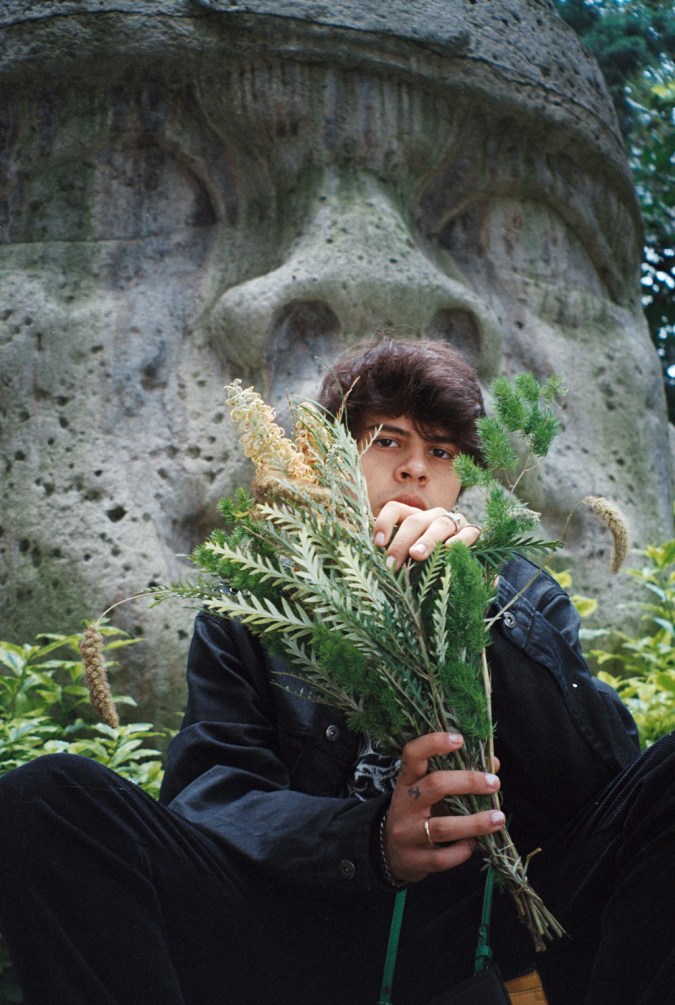
Yoshi’s beginnings were closely tied to computers. “I started playing drums when I was 11,” he says from his home/studio in Mexico City. “I watched [the film] School of Rock, and I realized those kids were my age and it made me want to play as well. I studied drums and music theory and ear training, as well as some singing, but I dropped it for a while. I got into junior high, then I started making beats when I was 15. I loved ‘90s hip-hop and stuff like Joey Bada$$. I wanted to make beats for rappers like that.”

“My mom introduced me to a lot of music as well,” he adds about his musical upbringing. “She would play me The XX, Foals – stuff like that. I went to the first Corona Capital [festival, in 2010] with my mom when I was 12. My vision was to make music similar to the indie stuff but within hip-hop, stuff with a lot of artistic merit. Back then I wanted to make an EP where I wanted to rap as well as make the beats. I would take my mom’s Mac and use it for beats and plug in Apple earphones or speakers from the home stereo before I started studying audio engineering. Eventually, I got into a course for digital production, my teachers were [Mexican experimental electronic artists] Daniel Arp and Métrika. They liked what I did and they supported me. Diego Cevallos [Métrika] introduced me to the guys at Finesse Records, and they invited me to work with them. It was like an internship, I was there to learn and I was not making money. That’s where I met Jesse.”
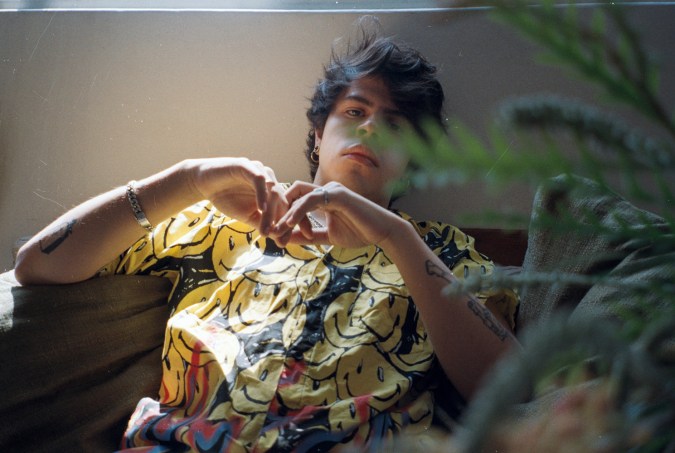
When he entered the orbit of the Monterrey-based neo-soul label, Yoshi had to shed some of his original goals with music, like becoming a figure on the urban side of the internet. He started writing lyrics in Spanish and listening to the flow of trap artists from Spain. However, everything came into play when he got a chance to work with Jesse Baez.
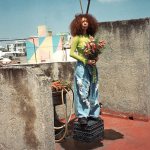
”From the get-go, I thought this was something I had been preparing to do my whole life,” he says. “It was amazing to run into Jesse because you can study music from afar but at the end of the day, nothing beats actually doing something. Jesse is so different from other urbano artists, and he was also ahead of the times. I think both of those qualities also define me so I think that’s what I needed in terms of coming into my own as an artist.”
One of the most important changes for Yoshi was adding “songwriter” to his resume, but his chemistry with Baez has played a huge part in his learning experience. “When we did Turbo, those songs were recorded in an afternoon. ‘Mama Lola’ was a one-take song,” he says. “We were taking a break, eating McDonald’s or something, I was playing a song and something clicked for Jesse, he made me download the instrumental and he just went for it; I recorded a take of the melody and left it aside. The next day, we heard the song and we wrote lyrics on top of that. We didn’t know what we were doing. It’s something we were just vibing.”
Soon enough, Yoshi realized that if he wanted to remain in the game, he needed something else besides striking gold when the muse come knocking. “You can’t rely only on inspiration. You have to find a way to work, a formula or a language. It’s tough to develop a language that is my own but remains universal. I have my methods now, it’s a more professional situation; it’s more methodical as well. I take it more seriously now. You can establish rules but you should know when to break them. I want to make stuff that excites me.”

Having spent so much time with Baez and achieving so much together, it’s hard not to think that both of them have grown together some way or another. For Yoshi, he learned from Baez what it really meant to achieve goals. “The most valuable lesson I’ve learned from Jesse is to always move forward because he never stops,” he explains. “If he needs to do a song, he does it. Doesn’t matter if he’s having a bad time with his girlfriend, he does what he has to do. He inspires me. He wants this. From day one he told me, ‘As long as you’re not dead, there’s nothing that should derail you.’ I don’t take this for granted. I have to do this every day. Jesse tells me, ‘Don’t trip. Finish the song. Let’s mix it.’”
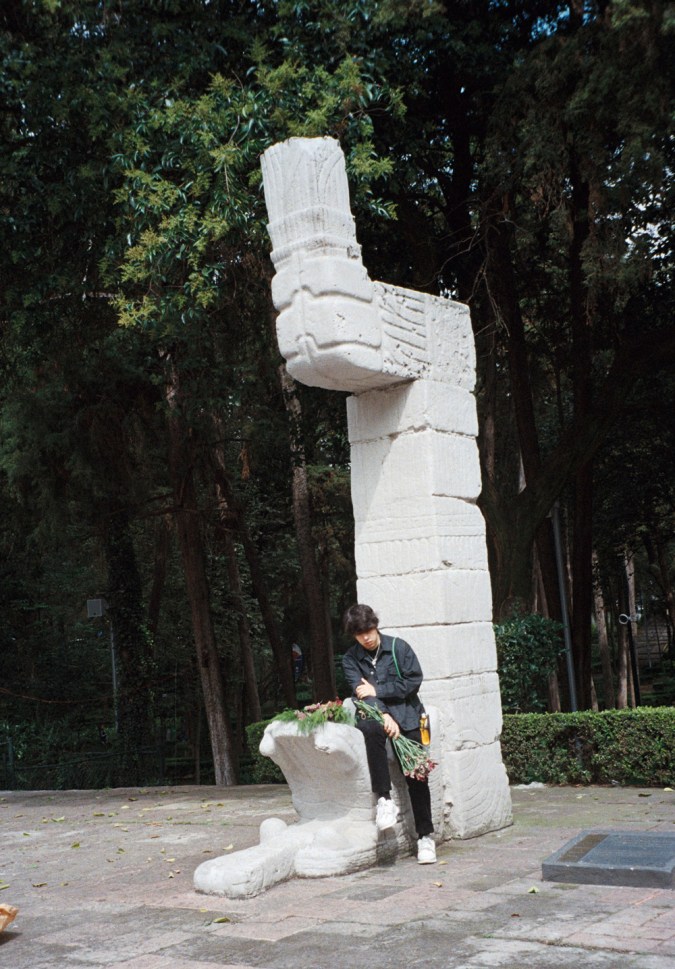
“I try to work every day on something that’s completely mine, something that is part of my journey,” he adds. “It’s important to work on my own music. I also work on music for whatever artist I’m working with or trying to work with. Working on music is an everyday project.”

As one of the pioneering producers of the nascent wave of Mexican R&B, Yoshi has a good understanding of the genre and what lays ahead of it. For him, Mexico is not new to this music. “I think R&B en español has existed forever,” he says. “Luis Miguel did R&B, [Emmanuel’s] ‘[Chica] de Humo’ is a new jack swing song. I think that right now everybody is going after where the money is, which is reggaeton and Caribbean rhythms; but we’ll move past it to make R&B, hip-hop, dancehall and whatever with a Mexican touch. People my age are getting on that bandwagon. Yesterday, I heard something that’s so good; it’s by a producer my age and it blew my mind. I think we can produce a new ‘Chica de Humo.’ There’s not enough quality sh*t out yet, but it will come.”
Yoshi prioritizes collaborations and linkups any which way he can, joking that he’s kind of an A&R person since he loves setting meetings for like-minded people in hopes they get to do something together. For him, this is essential for the proliferation of his chosen path, and something that will benefit everyone if they find enough hunger and put aside egos.
“I don’t know if Mexico will become a capital of pop music like it once was but we know there’s a lot of talent and people trying to push the culture,” he says. “I’ve been meeting so many people this year — some younger than me — who are not conforming with doing formulaic music and that’s very exciting for me. There’s still so much great music ahead.”
